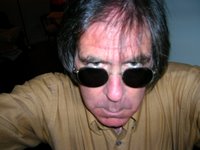March 29
 Warner Leroy Baxter was born on the 29th in 1889, in Columbus, Ohio. He moved with his widowed mother to San Francisco, California in 1889, allowing him plenty of time to adjust to his new surroundings before the 1906 San Francisco Earthquake would force the family to live in a tent for a couple of weeks. Once firmly and safely ensconced on the left coast, Baxter was drawn to Hollywood and managed to have some success as an actor. In 1921, he got his first starring role in the movie Sheltered Daughters. It was as the Cisco Kid in the movie In Old Arizona, the first all-talking movie, that he finally achieved true star status. The movie was an adaptation of O. Henry’s story The Caballero’s Way. (O. Henry’s real name was William Sydney Porter. He was sentenced to five years in prison after being convicted of embezzlement in 1896, which goes a long way in understanding why he felt it necessary to use a pen name.)
Warner Leroy Baxter was born on the 29th in 1889, in Columbus, Ohio. He moved with his widowed mother to San Francisco, California in 1889, allowing him plenty of time to adjust to his new surroundings before the 1906 San Francisco Earthquake would force the family to live in a tent for a couple of weeks. Once firmly and safely ensconced on the left coast, Baxter was drawn to Hollywood and managed to have some success as an actor. In 1921, he got his first starring role in the movie Sheltered Daughters. It was as the Cisco Kid in the movie In Old Arizona, the first all-talking movie, that he finally achieved true star status. The movie was an adaptation of O. Henry’s story The Caballero’s Way. (O. Henry’s real name was William Sydney Porter. He was sentenced to five years in prison after being convicted of embezzlement in 1896, which goes a long way in understanding why he felt it necessary to use a pen name.)









